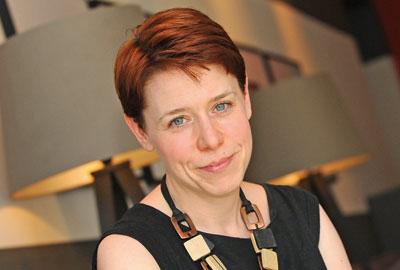Phenomenal rise in job starts

Latest labour market statistics published this week show that there are half a million more people in employment now then at this time a year ago. Let’s just repeat that: half a million more people in one year alone. That is a phenomenal achievement for everyone involved.
Employment has been one of the big success stories of the past few years. At the height of the recession there was huge concern about youth unemployment in particular and there was talk of a lost generation, unable to enter the workplace in their formative years. This has to a great degree turned around. Since 2010, there are 2.25 million more people in work and youth unemployment has fallen by 314,000.
When the Minister for Employment, Priti Patel, spoke at ERSA’s annual conference recently, she had a good unemployment story to tell. While many would disagree with her assertion that long term unemployment has largely been overcome, aside from those on inactive benefits, it is undeniable that there has been a significant upturn in our labour market.
The employment support sector has played a strong role in this turnaround. Our latest figures show that that over three quarters of a million people have now started work with support from the Work Programme since it began in 2011. Of these, 482,000 have already reached a job ‘outcome’ (for most jobseekers this is the point when they have reached 6 months in employment), a figure which is set to grow strongly.
This is the biggest labour market activation programme that has even been run in the UK and it is delivering bold achievements at scale. While the Work Programme is not without its critics (those delivering it themselves would highlight key areas where it could be improved), according to both the NAO and Work and Pensions Select Committee it has delivered comparable performance to previous programmes at a greatly reduced cost. That’s better for the Chancellor and the taxpayer.
Nevertheless, it’s hard to understand the impact of the programme through numbers alone, so here is the story of Andre Ferguson, the former jobseeker who also addressed delegates at the ERSA conference this year.
Andre’s daughter lost her hearing at the age of one. Looking for local services for deaf children, Andre struggled to find anything suitable. His daughter, Azara, liked to sing and dance, but it was hard to find groups that would support Azara to participate.
Andre was helped by PeoplePlus to set up Meaka Bears, an independent community-based charity which hosts group activities for deaf children and provides vital advocacy services for parents of deaf children.
He said: “Thanks to Jacqueline and the help I found on the Work Programme, I have moved closer to creating the kind of company that is needed for deaf children and their families in south London.”
Without a doubt, Andre was a standout star speaker at the event; his passion and drive inspired those that attended. He is just one of the people behind the employment figures and what his story tells us is simple: moving into work is transformative. That is why it is important that we take a moment to peer behind the headline figures to reflect on what the achievements really means…to people, their families and their communities.
Kirsty McHugh is chief executive of the Employment Related Services Association (ERSA)












Responses